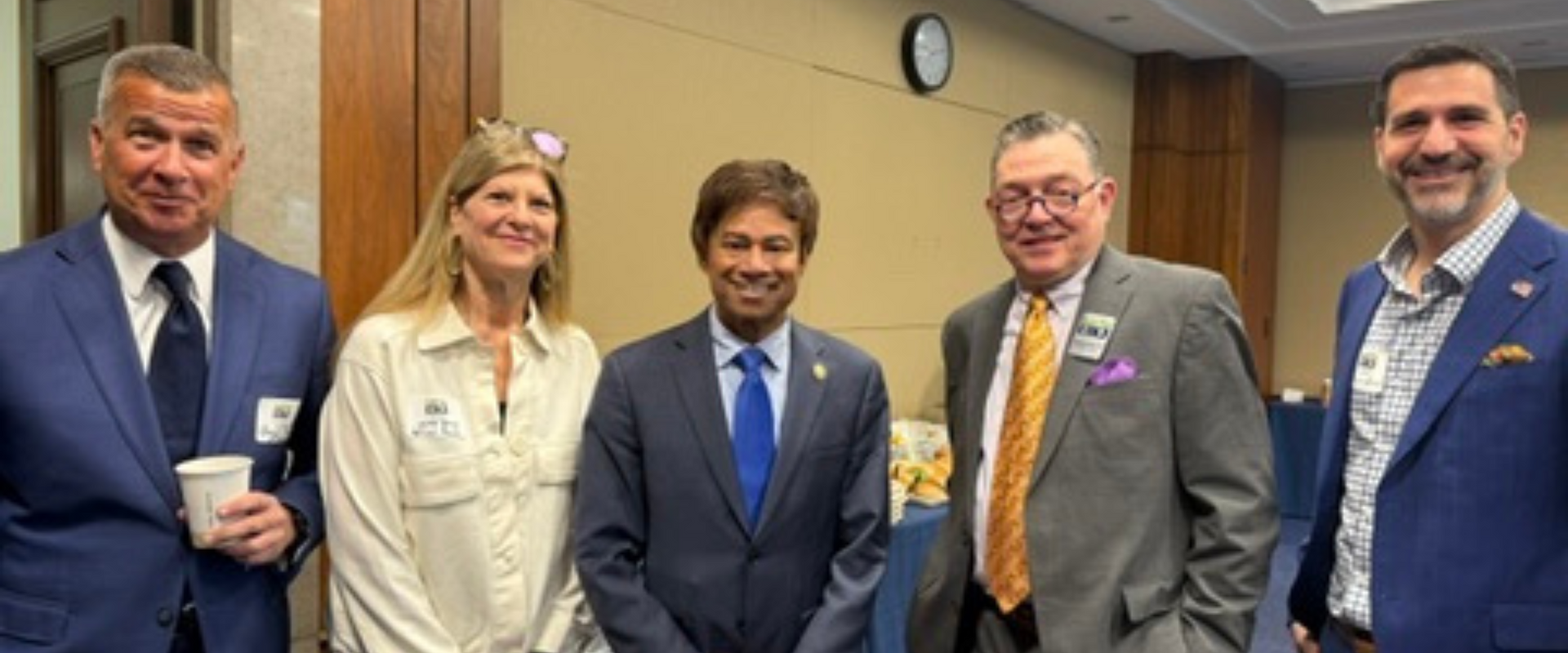The Critical Role of Advocacy in Michigan’s Bio-Industry

If you read our blog post Michigan Life Science Organizations Visit Capitol Hill, you learned about the progress we made during our recent visit to Capitol Hill and the critical importance of advocacy work for Michigan’s life sciences sector. Advocacy is the foundation that ensures our industry’s concerns are heard, our needs are addressed, and our potential is recognized at the national level.
For some in our visiting group, this year’s Capitol Hill meetings were their first experience in these high-stakes conversations, while for others, it marked a welcome return to influencing federal decision-makers in person. But regardless of the perspective, everyone agreed on one unifying takeaway: advocacy work is vital to the success of Michigan’s bio-industry. Here’s what some of our participants had to say about their experience on the ground:
Reflections from MichBio Members
Laura Bonnell, Founder and President, The Bonnell Foundation:
“Change is coming from Capitol Hill, in part because of the advocacy work we did during the MichBio Fly-In. Our group of six represented science, law, innovation, and the rare community. We met with lawmakers and their aides, spoke about legislation that affects us all, and we were truly heard. Being organized, informed, and engaged made our voices impactful. I left feeling empowered, connected, and more knowledgeable — and I’m committed to staying involved.”
Harold Chase, Director, Government Affairs, NSF International:
“I have had the privilege of participating with members of MichBio for the BIO Legislative Fly-in over the past several years. This year’s event provided a timely opportunity to meet with members of the MI Congressional Delegation and discuss the impacts of the staffing cuts at FDA and NIH on the biotechnology industry and how that will negatively impact public health.”
Andrew Kocab, PhD, VP Research, ONL Therapeutics:
“Part of the value of the trip was interacting with other members of Michigan's bio-industry, representing facets I don’t always get to engage with. It was a good reminder that all of us, however disparate we may initially appear, are connected in the ecosystem, from therapeutic companies to IP firms to patient advocates and more. Decisions that impact one of us can affect the rest of us, and Michigan's bio-industry depends on all of us thriving.
Meeting with the Congressional staffers was great. They were attuned to our issues, and it was nice to make those connections and represent our industry. We talked about important issues and discussing them in person felt vital so that our industry isn’t as easily forgotten or overshadowed. It’s often said that decisions are made by those who show up. It felt good to show up and advocate for Michigan’s bio-industry.
For the meetings where we met with the Member of Congress, I appreciated that they took the time to listen to our concerns, and I valued their support. Additionally, it was nice to interact with them and see them as people, instead of just talking heads on cable news making abstract decisions far away. These visits allowed us to humanize our industry in the eyes of Members of Congress, showing that their actions in Washington affect real people back at home.”
Brandon McNaughton, PhD, Founder and CEO, Akadeum Life Sciences:
“After several years of not making it to DC to meet with congressional members, I made it a priority this year – particularly because the current policy changes have a direct impact on early-stage life science companies like ours. I was encouraged by how willing offices from both parties were to engage on the realities of running a life science company in Michigan. These conversations were a reminder of how critical it is for emerging companies to have a seat at the table. For startups, these engagements aren’t just symbolic; they are vital for making sure the unique needs of our industry are understood and supported at the federal level.”
Thomas Moga, Partner, Dykema:
“I was fortunate enough to have the company of corporate representatives with Michigan roots during our Congressional meetings. I was able to join the concerns expressed regarding uninterrupted funding and the reliance small- and medium-sized businesses have upon such funding for growth and expansion and, ultimately, the creation of jobs in Michigan. I also had the opportunity to discuss the legal impact of changes to the 1980 Bayh-Dole Act proposed in December 2024 which would lower the threshold required for ‘march-in rights’ held by the government to be exercised. It is always possible to address such issues by correspondence, but the impact of face-to-face meetings is always much greater.”
Why Advocacy Matters
Advocacy isn’t just a tool for change; it’s a responsibility that falls on every member of the life sciences community. It ensures innovation is protected, investment in growth is encouraged, and vital policies keep pace with the needs of our industry. Face-to-face meetings with lawmakers and their staff allow us to voice our concerns and keep Michigan’s life sciences industry visible in national conversations.
MichBio is proud to lead the charge, but we can’t do it alone. It’s critical for all life science organizations in Michigan, whether small startups or well-established corporations, to participate in advocacy efforts. This is a collaborative effort, and your voice matters.
Get Involved
MichBio offers multiple opportunities for engagement, from Fly-Ins and Capitol Days to policy forums designed to influence decision-makers. We encourage you to share your views on the challenges your organization faces, key areas of opportunity, and what you feel matters most. Together, we can make a lasting impact.
Advocacy works when we stand united. Your perspective and expertise can help drive innovation, foster growth, and create a stronger future for Michigan’s bio-industry. Join us, take part, and help shape the policies that will define our industry’s future. Contact us to learn more.
We’re in this together, and the time to act is now!
RECENT ARTICLES




